[MOVIE REVIEW] Port of Shadows (1938) by Marcel Carné
Port of Shadows (Le quai des brumes) was first intended to be a German production, but Jacques Prévert's story about a disillusioned deserter was considered to be "decadent" by the German propaganda minister Goebbels, and the film was later banned by the German occupying forces. After this flattering recognition it's difficult to say anything about Marcel Carné's film that doesn't feel superfluous, but I will make an effort.
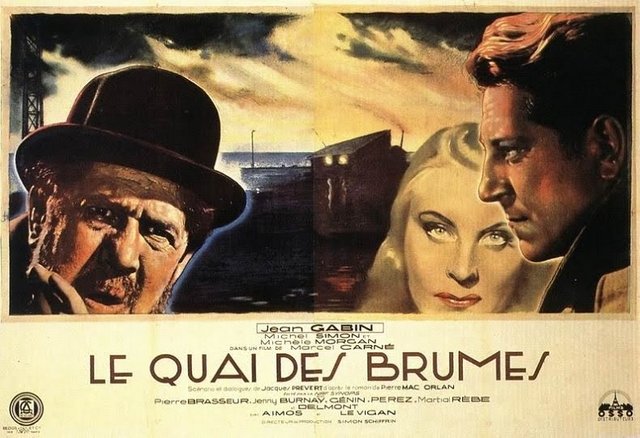
Marcel Carné along with the poet Jacques Prévert, developed the so-called "poetic realism". It was about using the dialogue, acting, decor and camera in such a way that all the details form a whole, or rather a unity. The poetic realism is thus quite evocative - in a depressive way, since it's adapted to film noir.
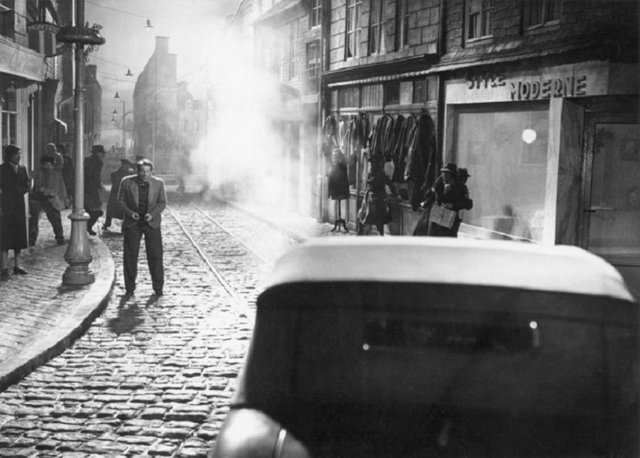
This is probably the darkest and most tragic film noir I've seen - it makes "The Big Sleep" seem like a fairy tale in comparison: the dim light, the greyish sky, the tawdry scenery, the ominous atmosphere, the exquisitely sarcastic, melodramatic and fatalistic dialogue, the melancholic face of Jean Gabin, the dark music; all of this contribute to making this one of the most depressing masterpieces one can endure - and yet every second is a pleasure.

The disillusioned deserter on the run Jean, acted by the uncrowned king of film noir, Jean Gabin, wants to escape France from Le Havre, the last outpost in a France, where the drowned ideals of the revolution since long have drifted ashore at the Port of Shadows, where morality is dead, sarcasm is the only humor, where stray dogs are prowling the streets and where all the righteous heroes face an inevitable and unjust death. Instead of the immediate escape on one of the large ships that dock in the harbor that the fugitive protagonist was wishing for - destination South America - he ends up in a destructive carousel of crime and love.
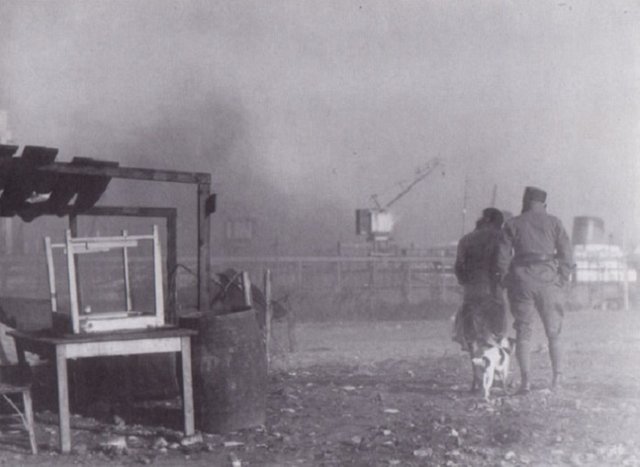
Somewhere in this dark morass a glimmer of hope is born - a dull flame that is doomed to suffocate in the darkness. This flame is central to the film's theme, and Carné doesn't have the slightest sympathy for the broken hearts of the audience. It's in many ways a film about man's impossible quest for happiness.
Carné himself said: "There is always a moment of happiness for my characters - a moment, that's a lot!"
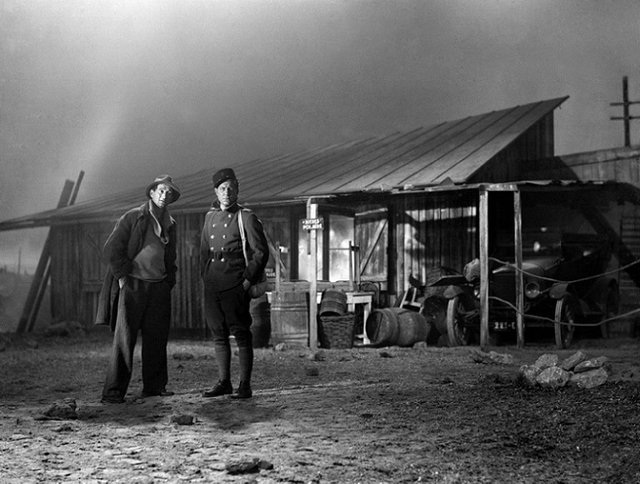
The film, in Eugene Schufftans brilliant cinematography, is certainly black and white, but the blackness has more to do with human morality than anything else. It largely takes place in the scruffy parts of the port town whose inhabitants certainly don't belong to God's best children.
In a tavern he meets, among others, an artist, not quite in balance with his life, but also a girl, Nelly (Michèle Morgan). Nelly and Jean are instantly love-struck by each other - two lonely souls meet. The orphan girl Nelly normally lives with her uncle, Zabel, a shop keeper whose not-always-so-honest business dealings draws him into shady interactions with gangsters that are hard to get rid of. Zabel even tries to hire the deserted protagonist to help him deal with the gangsters.
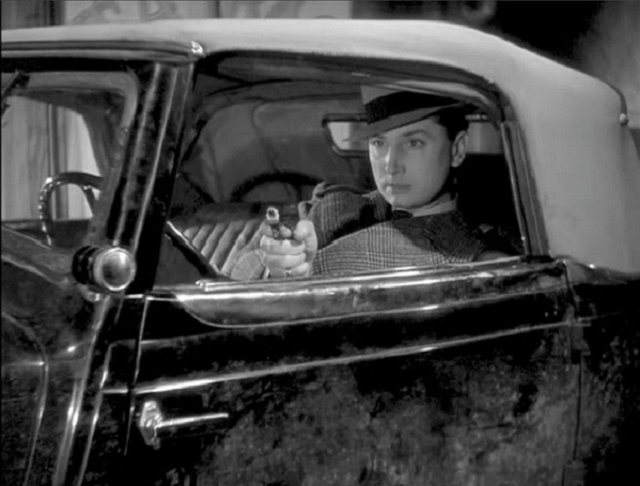
Jean gets unexpected help in his efforts to change his identity and get out of the country when the unhappy artist drowns himself and leaves his clothes and money, as well as his passport on the beach. Will this be the lucky strike that may give Jean a new start in life? Unfortunately not only the body of the artist, but also the bundle of Jean's uniform is washed ashore.
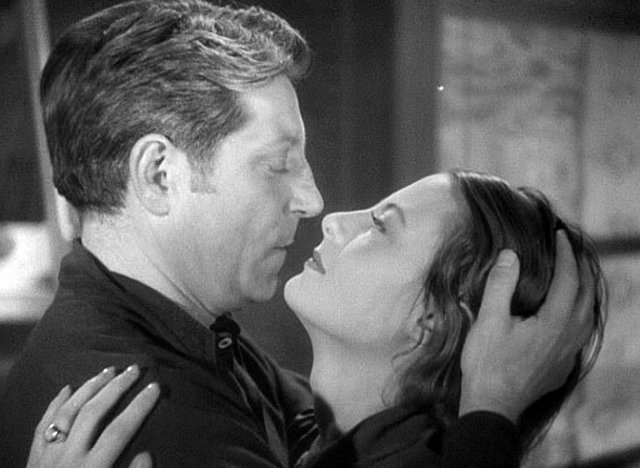
No happiness - at least not in Marcel Carne's films - is persistant. The fate catches up with him in the guise of a gun armed and vengeful gangster that Jean humiliated a few times in the past. Left, alive and in freedom, is now only the stray dog, that against Jean's wish and despite his outbursts against it, chose to follow him around. Heartbreaking.
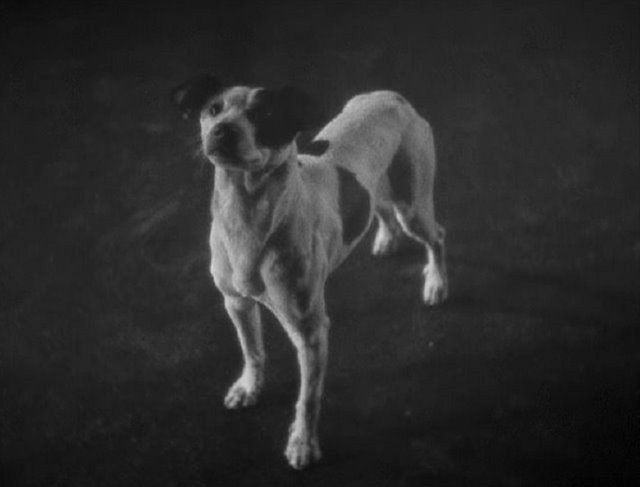
It's easy to understand why the film has become a timeless classic. The setting is magical, the port city of Le Havre is wrapped in mist and mystery. Jean Gabin in the lead role has a rare and magnetic charisma. He embodies the disillusioned, silent hero - cynical on the surface but with a romantic core. He realizes the world's vanity, the impossibility of living a life with uncrushed ideals. His quest for freedom and independence leads to loneliness and destruction.
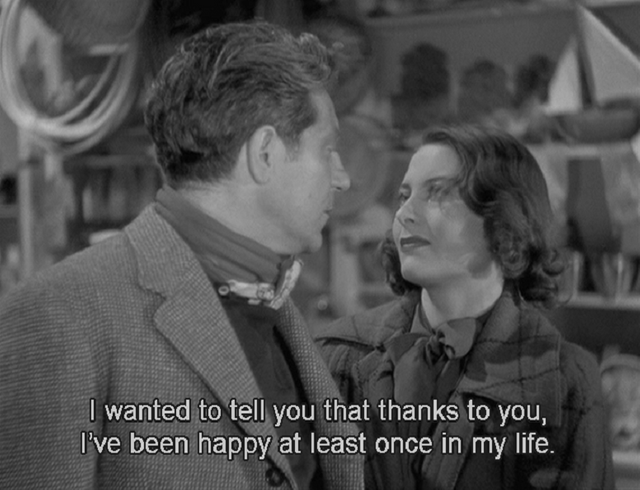
A lot of people laugh dismissively at the thought of watching a film from the 30's, and sure, there are parts in Port of Shadows where the melodrama takes over. A dying man whispering his last words for instance. But the film has a certain weight that makes most modern films flutter away in the wind. Into the fog of oblivion.
Someday I have to visit Le Havre.
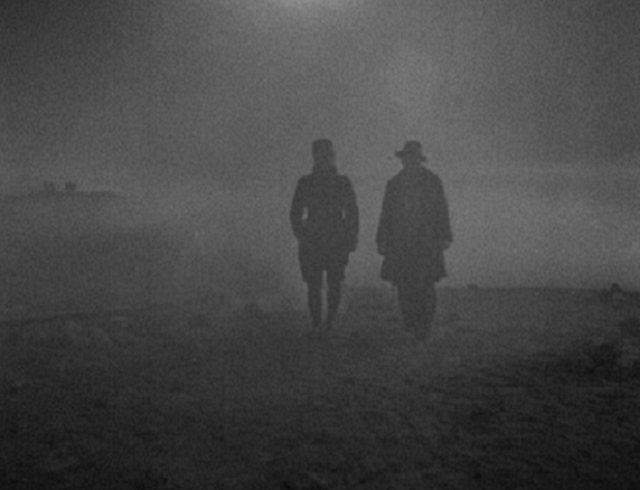
Great review. You know your film history!